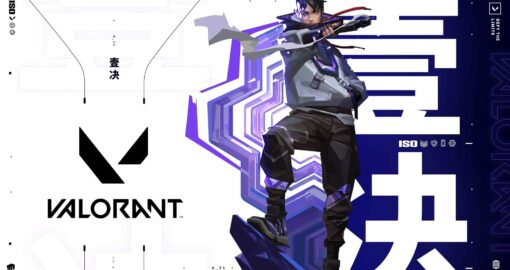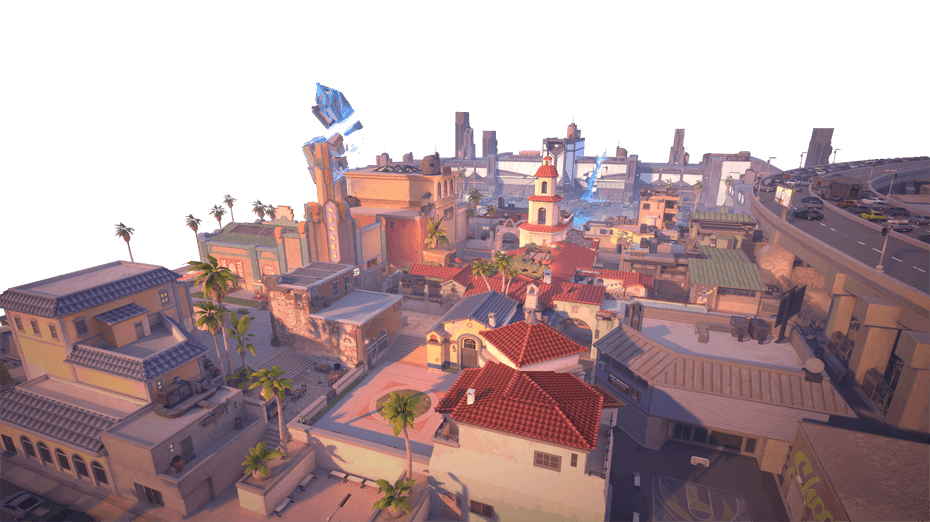How to Communicate in Ranked VALORANT
Being an effective communicator in your games is going to lead to better team coordination and ultimately increase your team’s chances of securing each round.
This article is going to explain how you can improve your communication skills in Valorant whilst also providing examples you can use in your games.
Communicating with the team as a solo queue player can be tough so we will run through some ways you can try to gel with the team.
A skilled communicator and in game leader (IGL) can provide valuable information to the team in a clear and concise manner. It is important to be succinct whilst providing as much information as possible, this will allow for your teammates to process your callouts easier.
This is because tempo in Valorant is an important concept – the earlier that your teammates understand where the enemy are and what sort of play is being executed the faster they will be able to respond. Being superfluous is not only going to slow down your team’s responses but also might lead to them missing key information.
If you’re a brand new player, we recommend skipping to the terminology section at the bottom of the article before you begin reading. Otherwise, let’s dive in!
The key ingredients for good communication
First and foremost one of the most important things is to make sure you uphold a sense of respect towards your teammates and try to create a positive environment.
By doing so you will instill them with a sense of confidence and will be minimising the chances of team tension and or individual ranked anxiety.

Credits to karinscr on DeviantArt
It is difficult to try and manufacture comradery and positivity between you and your teammates since most gamers are focused on themselves and the RR that is at stake.
Most people will appreciate it if you are simply helpful, respectful, and are conveying throughout the game that you are giving your all.
How to be helpful
The best way to help your team is to provide them with information you have on the enemy in a quick and succinct fashion.
Try to share whatever information you gain on the enemy as soon as you are aware of it, this way your team can support you earlier.
When you are making a call-out make sure not to omit any vital information in the hope of being short and snappy.
Let’s run through a good and bad version of the same callout.
Example 1:
- Bad callout: “Tagged 100, 2 mid.” [Haven]
- Good callout: “Raze tag 100 mid, Reyna back B.”
- Here you have stated which enemy is tagged and given a more specific location for the other agent that you have also now given an identity to.
Example 2:
- Bad callout: You die back site A on Haven to a Raze that was Hell, 10 seconds ago. Your teammate is last alive in a 1v1 with the enemy Raze. Your teammate is walking up Sewers: “Raze backsite”.
- Good callout: Care close, could be anywhere
Example 3:
- Bad callout: You tag Reyna 100 but you ignore the fact she is over-healing and say, “Reyna tag 100”.
- Same can apply for if you tag and die to a Sage early in the round.
- Good callout: “Reyna [location] tag 100 but over-healing”. “Sage tag 100 used heal”.
Example 4:
- Bad callout: You are playing aggressively at A Cubby on Bind as a defender and die to the enemy Jett, you hear lots of footsteps behind her and say,
- “All A”.
- This could give your B defender a false sense of security when you can’t know for sure that all enemies are short).
- “Jett tag 80”
- This is a lazy callout, you are holding back information from your team, you should let them know that there are multiple enemies A side.
- “All A”.
- Good callout: “Few A short, Jett tag 80”.
Information that you should be sharing with the team
- Spotting an enemy momentarily in the distance – You should be sharing with your team where and who it is
- Planning to use your utility as a Controller or Initiator – You should explain to your team what your plan of action is. I.e. “Dogging shop”. “Concussing ramp now”. “Pulling logs”.
- If you have noticed the enemy has wasted valuable utility, it is worth informing your team. I.e. “Sage no slows”. “Reyna Dismissed no heal”. “Breach no Flash”. “Skye dogging out B”.
- Valuable utility you don’t have this round. I.e. “No wall this round”. “No smokes this round”. “No trips this round care flank”.
How to be respectful
Try your best not to educate a teammate in game since ranked is not the best place for individual tuition, the player might take it the wrong way and it is more likely to create tensions than do any good.
If your teammate makes a mistake it should be needless to say that a small pick-me-up remark and bit of encouragement for the next round will go a lot further than anything patronising or belittling that can only fester negative energy and team tension.
One major thing I highly recommend avoiding is micromanaging your teammates. Valorant like most tactical shooters is full of unpredictable action and a myriad of different agent and map-specific interactions that can occur round to round.
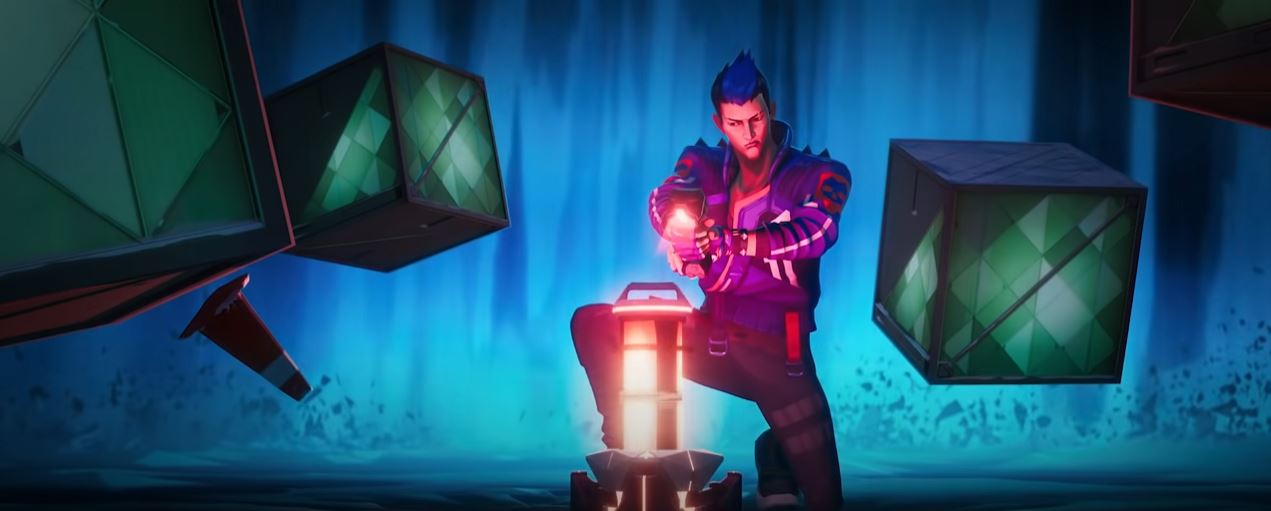
Micromanaging teammates will strip them from feeling confident with their own decision making whilst also most likely aggravating them and your other teammates.
Micromanaging can be defined as guiding the player through the round with multiple callouts trying to pilot their behaviour and make their decisions for them. It is best to let your teammate do what they feel comfortable with.
Lastly, avoid saying anything if your teammate is last alive in a clutch situation unless it is absolutely necessary since it can seriously disrupt their concentration and plan of action.
How to give it your all
This should be self-explanatory, trying your best and caring about the result in ranked is going to give you the best chance of your teammates reciprocating the same effort and level of support towards you.
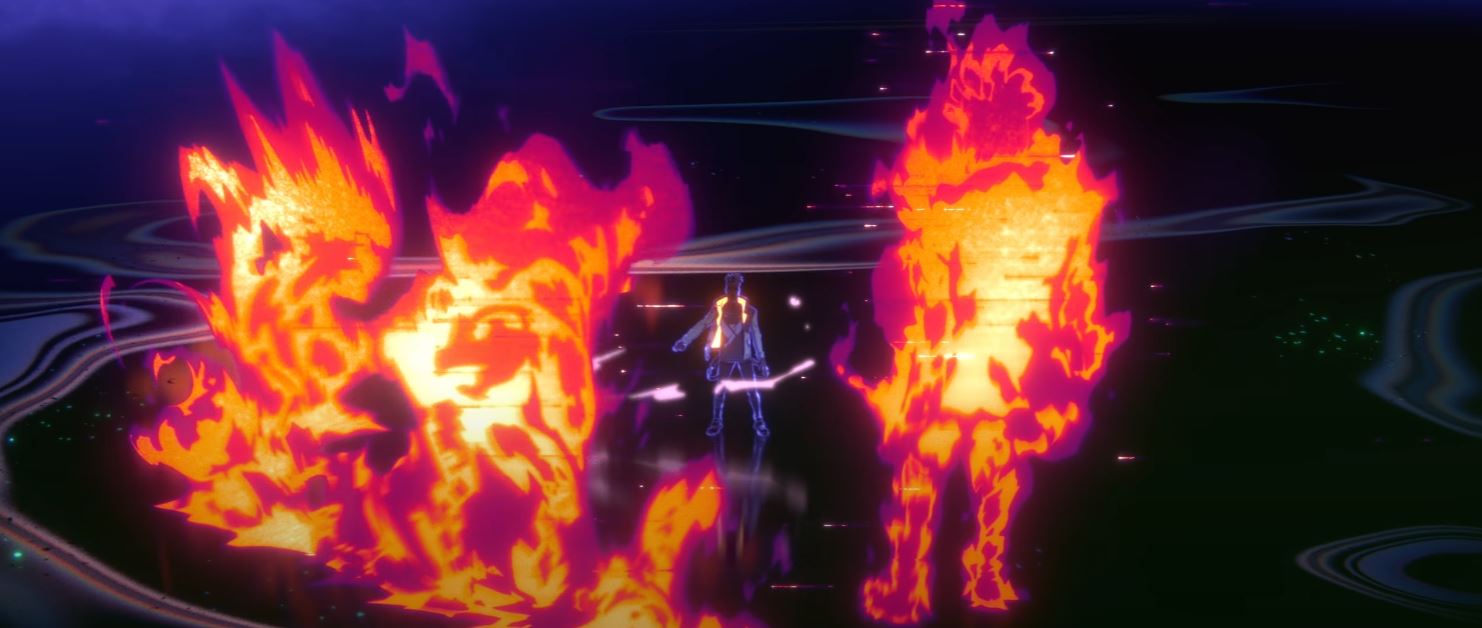
Go the extra mile to communicate with your team, don’t always assume that they understand the situation. This is especially the case for agents who have a significant impact on the map.
For example, if you are playing Controller Agent’s or Initiators it is important you inform your team what you are doing with your abilities.
- If you are a Breach and are silently going about your business whilst you are about to use your Faultline, Flash and Ultimate on a bomb-site your team is not going to be ready to capitalise of your utility.
- If you are an attacker in a post-plant situation where the bomb is down and you have to play time with one other teammate. Let’s say you are Astra and have a star down on the bomb so when the enemy tap you can pull them off. You should let your teammate know this so that they don’t peek unnecessarily when the bomb is tapped, they can stay hidden and make it difficult for the opponent.
- Flanking is much stronger if you are able to communicate with your team that you have slipped behind enemy lines and are able to catch them off if your team can keep distracting from the other side. This will help your team understand that they should only be jiggling and not fully duelling the opponents, they will know to only commit after you have made contact.
Some games are out of your control, even though you were respectful, helpful and gave it your all, there are just too many variables in a game of ranked and sometimes things will just fall apart and all you can do is watch.
If things happen to reach the point of no return with trolls or a team has just been arguing and is way too difficult, just remember this advice for Fanatic’s IGL, Boaster.
https://www.youtube.com/watch?v=aU19C9JxuEg&ab_channel=Saturnine-ValorantMoments
Communication Terminology
Anti-eco
- A strategy your team can employ to combat the enemies eco-round. This is mentioned at the start of rounds when your team is aware the enemy will be forced to eco in some sort of way. It may mean, keeping your distance from enemies and only engaging in long range duels since you assume they will have cheap close range guns.
Bait
- Examples: “Let’s bait out utility”. “Bait me”.
- To make a play where you want to draw out something from the opposition whether that is the enemy agents themselves or their utility.
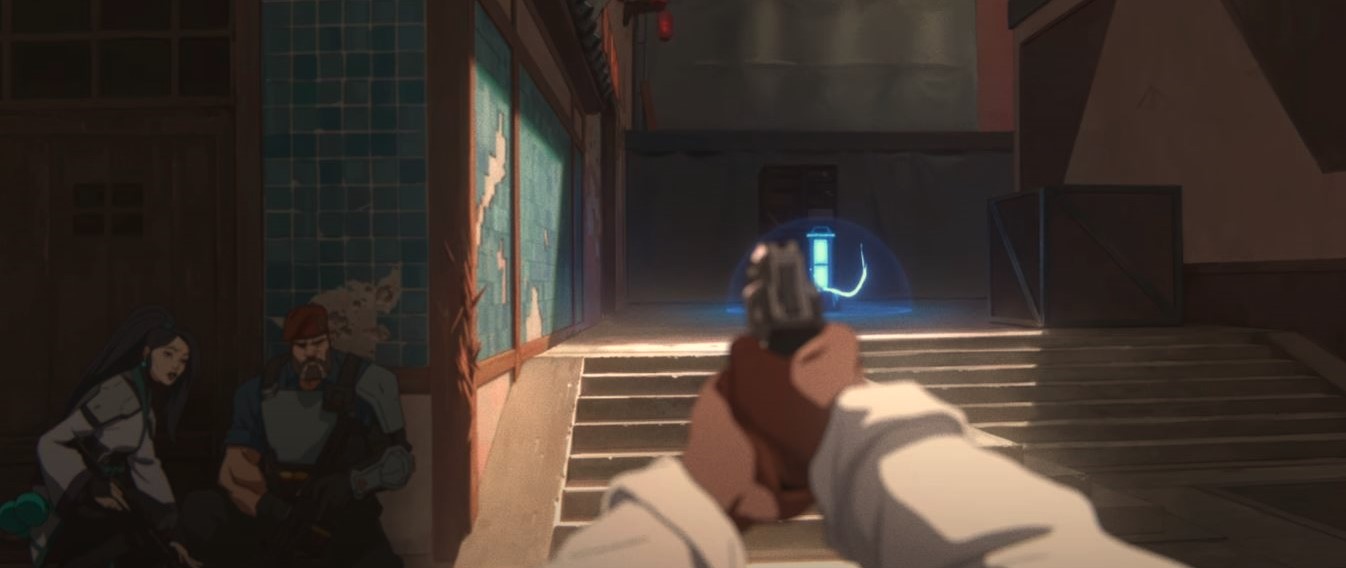
Care
- Something that is said by one teammate to another about a looming or potential danger nearby. I.e. You died earlier in the round in Garage on Haven, and now your teammate is entering mid grass after A or C Lobby, you should warn them, ‘care Garage’.
Crossfire
- Establishing a line of sight to hold with a teammate so that you are both covering each other, (holding the same line from opposite sides).
Ct
- ‘Counter-Terrorists’. This is a CSGO reference and people use this since this abbreviation is a lot easier to blurt out than defender spawn.
Cubby
- Refers to part of the map with a deep pocket like area where enemies can hide. Most cubby areas in Valorant are like rectangular inlets, for example A Short Cubby on Bind.
Cut noise
- Being completely silent: shift walking, not reloading your gun etc.
Default
- Playing default is the act of showing presence across the entirety of the map. It is a strategy which can be organised by attackers at the start of the round. For example, playing default on Haven as attackers would be 1 holding C Long to prevent defenders from pushing, one holding A Garden/Lobby whilst the rest take mid control.
Dinked
- The enemy has been headshotted. You only really want to say this if you know that the enemy is low health. It has a similar function to ‘one-shot’.
Dirty
- If something is dirty, it means your team has no information for that area and it has not been cleared or checked. It is generally used by one teammate to warn the other that an enemy could be there. I.e. ‘Garage is dirty’.
Double peek
- Swinging with a teammate
Eco
- An abbreviation for economy with the generalised meaning somewhere between save and half-buy. If someone says, ‘we have to eco’ it means that the team should take into consideration that they are low in credits and they should save in one way or another.
Fake
- Most commonly used in reference to ‘faking’ an attack on a bombsite. A fake is used to deceive opponents and sell them the narrative that you are attacking a site when you intend to end up elsewhere. I.e. “Let’s fake B and go A”
Flank
- Wrapping around the map to pressure the enemy from behind.

Force
- A risky strategy of spending credits even though you cannot afford utility, rifles and full shields. A Force may be something like the whole team purchasing Spectre Light-shields with all their credits.
Half-buy
- Your team economy isn’t awful but it is sub-optimal, only a few players can afford a full-buy whilst the rest of the team is broke. In this situation, a half-buy might be viable where you buy-down to the point where you see you will still have 3900 minimum for next round. This may mean some players on your team have 5000 credits whilst others have 2000, in this case the richer players can maybe buy a Spectre Full-Shield whilst still having enough for next round.
Jiggle/ Jiggle peek
- Can be either:
- To peek the corner (preferably with your knife out so that you are faster) without the intention to engage in a duel. Purely to find out information on the location of enemies.
- To burst fire your gun whilst strafing in and out of cover.
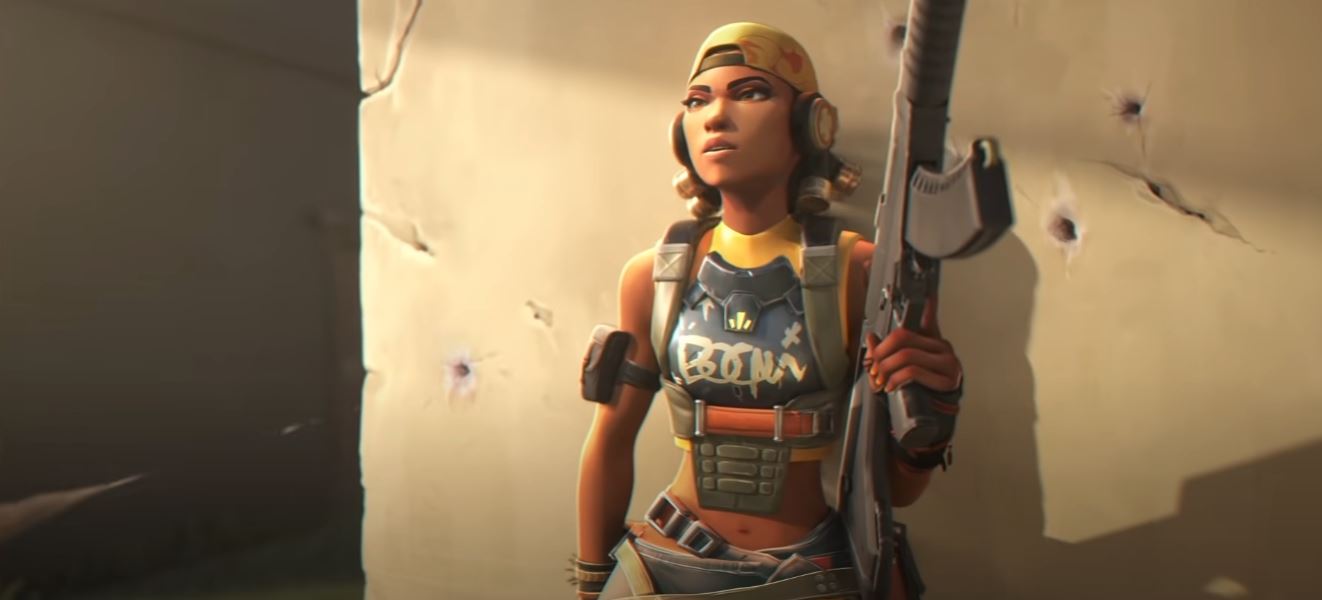
Lurker
- A player who strays away from his team and traverses the opposite end of the map in a stealth like manner in an attempt to catch off rotators and find picks.
One-shot
- A common way to alert your teammate that a certain enemy is one shot away from dying. I.e. Raze is one shot. This is specific to what round and what sort of loadout your team has. For example, if it is a pistol round and you tagged the enemy Jett 70 you should refrain from saying one shot since a Classic only does 26 to the body.
One-way
- A smoke that is positioned deliberately to be advantageous to one side, (generally the side of the defending Controller agent). The smoke functions best only ‘one-way’ since there is usually a gap below it that allows for the defender to have vision on the attackers whilst the attacker has limited or no vision towards the defender.
Play for picks
- Picks in this instance is another word for kills. Playing for picks generally encourages a slow playstyle in which case you would most likely establish a ‘default’ setup as attackers in the hope to catch a defender dropping their guard.
Play time
- Try to delay the situation. If you are in a 1v1 and have planted the bomb and the enemy is searching for you, you may receive a friendly reminder from your team to ‘play time’, in this case, avoid contact with the enemy and let the clock tick down.
Prod
- ‘Prodding’ is the act of slowly creeping up into enemy terrain whilst playing defence in order to provide information for your team. For example, if you are playing C site on Haven on defence (and there has been no noise or commotion on your site at the start of your round) prodding would be carefully making your way up C Long to check for any enemy presence. This would help not only with map control if the enemy decide to return to C but allows your team to understand they have to be
Rotate
- Leave the current side of the map you are on and ‘rotate’ to the other bomb site.
Sucked/Pulled
- When Astra’s Gravity Well is activated it ‘sucks’ and ‘pulls’ enemies towards the centre of her Astral Star. I.e. “Jett sucked back site”

Retake
- Playing retake as defenders is the act of giving the bomb site to the attackers, (if you are a lone defender on site and have assessed that too much risk is coming your way you can opt to leave site and save yourself from dying). By doing so you allow for a coordinated retake to take place in which case you may have more chance as opposed to if you simply died and left your teammates 4v5.
Re-hit
- Deciding to execute the same site again after cutting noise and leaving the enemy confused/ most likely believing that you have rotated.
Save
- The act of deciding not to spend your credits on any expensive weapons or utility to make sure you can full-buy the following round.
Shift/ shift walk
- Holding the ‘shift key’ to walk silently.
Stack
- The act of grouping together the team on one bombsite as defenders.
Swing
- Stepping out of cover to peek and duel an opponent. I.e. A ‘wide-swing’ is where you continue to strafe sideways the direction you peeked out of cover regardless of the fact you already made contact 2 steps ago. This is done in hope to make yourself a difficult target for opponents.
T
- ‘Terrorist’. Again a CSGO reference, it is a lot easier to say ‘T spawn’ as opposed to Attacker spawn.
Timing
- Saying ‘timing’ alludes to the fact that the enemy got lucky in regards to when exactly they did something. I.e. If you were holding Showers on Bind for 30 seconds and then the split second you gave it up someone killed you by Peeking you from Showers, that is an example of bad ‘timing’.
There are also instances of positive timing in which case you are aware you have slipped past enemies and can easily infiltrate their spawn and or flank. You could alert your teammates, ‘I’ve got timing just delay whilst I flank’.
Trade
- Avenging a fallen teammate immediately.
Utility/util
- Another term for agent abilities that can impact other players or the map.
Wallbang
- Refers to hitting an enemy through the wall via bullet penetration.
Hopefully you have a bit better of an understanding around how you should and shouldn’t be making callouts in your games. As always, best of luck with your ranked climb.
 Download APP
Download APP Collapse
Collapse